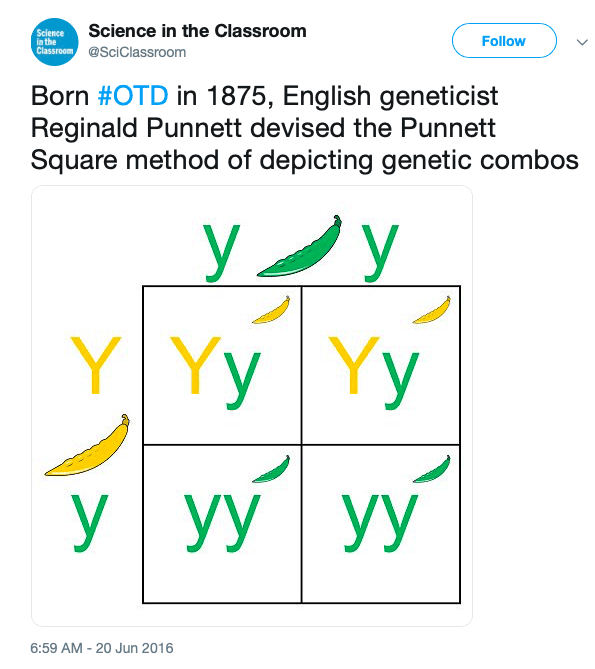Disease alters lives in permanent and often heartbreaking ways. Most people have a story about how they have been affected by disease, either firsthand, through a family member, or looking from the outside in on another person's life. In a world where tragedy is at the forefront of our personal lives via news stories, gofundme pages, and the like, it is almost impossible not to be touched by disease. In the harsh reality where many diseases end in an individual's death, why does disease itself not die off too?
While there are various causes that lead to disease, one important contributing factor may be your genes. A gene is made up of DNA and comprises basic units of heredity that are then transferred from a parent to offspring to determine some characteristic of the offspring. Therefore, genetic diseases can be passed down from parent to offspring because each parent gives a copy of his/her genes to his/her child. If the copies from both parents are identical for a given gene, then the child is considered homozygous for that gene; but if the two copies are different, then the child is considered heterozygous. This concept is better known as genetic inheritance.

Cystic Fibrosis (CF) is an ideal model for studying genetic inheritance as it is associated with a single gene; therefore, it is a relatively straightforward example. CF causes damage to the lungs and digestive system via mucous secretions that cause obstructions in these organ systems leading to inflammation, tissue damage, and disseminated destruction throughout the body. This mucous that causes physical damage of the airway also predisposes patients to developing secondary bacterial infections, which can result in respiratory failure.
So what do our genes have to do with developing CF?
CF is considered a recessive genetic disease, meaning a person must receive one bad copy of the gene that is associated with the disease from each parent in order to develop the disease. This would be a homozygous individual. If an individual only gets one mutant copy of the gene, then they are heterozygous. Heterozygous individuals can also be called carriers because they carry one copy of the bad gene even though they do not show symptoms.
There are an estimated 20,000 genes in the human genome, and when just one of those genes has a mistake in it, or a mutation, CF can result. Many of the different mutations that result in CF cause a significant portion of the DNA sequence to be altered, resulting in a change in gene function. When one gene's function changes, many processes are altered functionally from their original purposes if they were involved with that mutated gene.

These changes in the DNA sequence can be both inherited or acquired. Whether or not that mutation persists in the population is then determined by mechanisms of evolution. Natural selection is a process of evolution in which individuals better adapted to their environment have higher reproductive success. Due to the possession of advantageous traits, these individuals have a higher rate of survival, resulting in their offspring having a similar, high rate of survival. More of these offspring survive and pass on their advantageous traits. CF results in traits that are not advantageous for an individual's survival. Due to this, natural selection acts against CF.
So if CF is selected against, why does it persist in the population? Carriers of the disease do not develop symptoms because they do not develop CF. These individuals experience no negative effects from carrying a bad copy of this gene and assist in the “survival†of this genetic disorder. They pass on their single copy of the bad gene to any children that they have. This pattern continues until a homozygous individual is born.
While carrier individuals are asymptomatic, there are still ways to genetically determine your carrier status. Genetic testing is an accessible screening process that tests your genes for the presence of a mutant copy, meaning the bad gene. These tests are sometimes covered by insurance and sequence the specific genes in question in the patient's DNA. Genetic testing serves as the greatest preventative tool to allow individuals to make informed decisions when planning for their family's future. A person with a family history of CF should strongly consider undergoing a genetic test to screen for CF when planning to have children.
About the Author:

Guest writer Callan Russell is a third-year student at the University of Georgia pursuing her Bachelor's degree in genetics and a minor in music. Callan studies the molecular basis for epigenetic inheritance within the Schmitz Laboratory at UGA, but in her spare time likes to play trombone, volunteer with Extra Special People, serve at Athens Church, and play in the Redcoat Band at UGA football games. She plans on attending graduate school to study genetic counseling upon completion of her Bachelor's degree. You can email her at callan.russell@uga.edu.
About the Author
- athenssciencecafehttps://athensscienceobserver.com/author/athenssciencecafe/April 17, 2020
- athenssciencecafehttps://athensscienceobserver.com/author/athenssciencecafe/April 12, 2020
- athenssciencecafehttps://athensscienceobserver.com/author/athenssciencecafe/April 3, 2020
- athenssciencecafehttps://athensscienceobserver.com/author/athenssciencecafe/March 30, 2020







